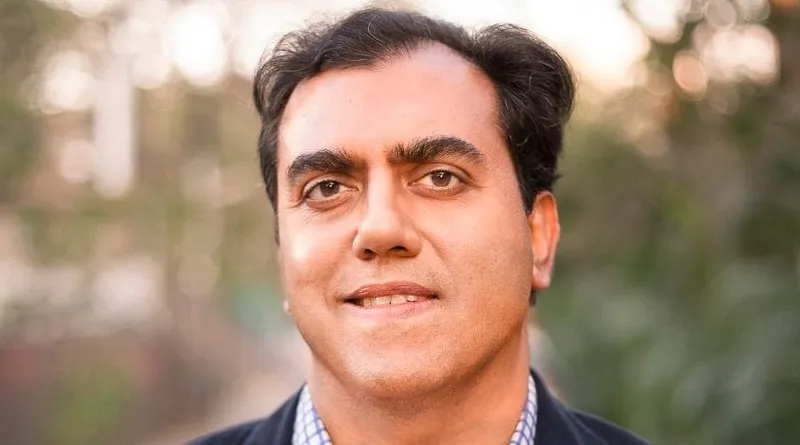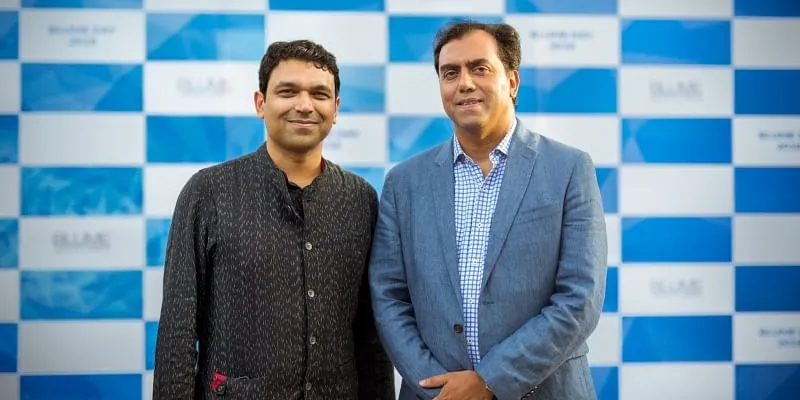[YS Learn] Here is what you can do to catch Sanjay Nath of Blume Venture Partners during a pitch
With the COVID-19 pandemic making investor meetings and pitches difficult, Managing Partner of Blume Venture Partners Sanjay Nath explains what he expects from founders to keep in mind while pitching over a video call.

Sanjay Nath, Blume Venture Partners
Every pitch has key elements - founder details, product information, key metrics, and market size. But what matters more than anything else is the story. While investors have their own views and ideas on how they want the story to be told, the fact that they are looking for a story doesn’t change.
With the COVID-19 pandemic and face-to-face physical meetings becoming non-existent, investors are looking for founders to answer their questions in fun and different ways. Also, with increased time to close a deal, one thing that founders need to dig deep within is resilience and patience.
Managing Partner of Blume Ventures Sanjay Nath points out key factors he looks for in founders today. The startups in which Sanjay has invested include logistics startup , healthcare startup , electric mobility startup , and video content startup to name a few.
Sanjay is also a board member on the Draper Venture Network (DVN), an affiliation of global venture firms. Sanjay says,
“We live in a different world today and founders and investors need to be patient. What would take one meeting over coffee will now take three to four zoom meetings and calls. The idea is to understand the changed dynamics on both sides and build your pitch accordingly.”
Do not pitch
- Nobody likes to be pitched to and nobody wants to be sold anything. People tune out when you go slide-by-slide and they simply want the call to end.
I like it when founders ask how would you want the meeting to run - you are already engaging. Some people ask for a story, some ask you to run to the deck. For me it should be a story, more of a conversation.
- As an early-stage investor, we bet on the coffee table conversation to get the pulse of the founder and the team, but now that meeting is gone. It is a 45-minute video conversation now. You have two founders, both working from home, next to each other on the zoom call on the screen. You can’t see body dynamics and get the pulse of the person.
- In normal times it is unbelievable to give term sheets to founders without meeting them, which means the one single meeting of earlier days is three meetings on a zoom call. So, be patient and try to make it as conversational as possible. Investors invest in a line and not in a point.
Entrepreneurs have a different view of the future - they paint a picture of what the future will look like according to them and will bring it back to the present. The idea is to invite us to a journey into the future.
The why is always important
- For me why the founder is doing a business is very important. What do you plan to do? Why are you doing it? And this needs to be a deep answer, not just the market size. The pitch deck is not main course, it is the side dish. The main course is the founder.
I like decks to flip through, but I want to hear the story on why he or she started, what are the customer pain points, how long have been at it, and who else have they roped in to join that story.

Sanjay with Karthik (L).
Bringing the grand vision to reality
- Story and passion are very important but you need to convert them into a believable plan with resources and team. Sometimes founders are very strong in vision but there is no plan to back it up.
- I want to see what is at the end of the tunnel, I am not backing you for three or two years, I am backing you likely for 10 years. I would like to see some movement since the startup started. For example, we signed up 10 enterprise customers at $100,000 ARR.
I want to see the growth, I don’t mind dips. What did you learn, have you learnt from your mistakes, I want to see a journey and a line and not a snapshot and one point.
What is your super power?
What is your super power? Why do people need your product now? And why are you the best team to provide that? Can you assemble a team of X men and X women who can execute your vision?
- Everyone says people are the single-most important thing. You may lose money as a VC firm, or you may lose a customer deal, it is all fine. But if you don’t have the right team of people, it is fatal. You will never bag good deals, never get customers.
- The most important thing is can they hire people, and are they good at hiring.
- It is the people who are going to be with you 24x7 and so it is important that you have the right team with you, especially in times of crisis.
- If you look at the Evernote Pitch, it was actually a hiring pitch. Are you strong enough to get someone excited enough to join you in your vision?
Bring in some outside validation
- With the pandemic making it difficult to access people and team, human elements and how creative you are become important.
- Founders can bring in some outside validation — what are customers saying, this is why we are able to hire well. If there are multiple people on the call, get different people to talk, nobody wants to listen to only one person.
- Today with more co-investments and syndicates happening, outside validation becomes important. It is difficult to vet the founders just on the basis of what they say.
“As founders, you need to be tenacious and resilient. It is a tough time but it also is a great time to start a company. You can plan for the future and also for the new world. Planning for the new world now with new ideas should be very powerful. It is a great time to think afresh. Biotech and healthtech are going to have a great ride, they are an exciting sector. We have the best talent in the world and it’s a great time to build from India for the world.”
Edited by Javed Gaihlot


![[YS Learn] Here is what you can do to catch Sanjay Nath of Blume Venture Partners during a pitch](https://images.yourstory.com/cs/2/a9efa9c02dd911e9adc52d913c55075e/Imageszjl-1598791006392.jpg?mode=crop&crop=faces&ar=16%3A9&format=auto&w=1920&q=75)
![[YS Learn] #Branding101: What startups can learn from Dunzo’s branding game](https://images.yourstory.com/cs/2/a9efa9c02dd911e9adc52d913c55075e/Imagen4iv-1598458193836.jpg?fm=png&auto=format&h=100&w=100&crop=entropy&fit=crop)
![[YS Learn] How Rapido cracked its first fundraise in a sector dominated by Ola and Uber](https://images.yourstory.com/cs/2/79900dd0d91311e8a16045a90309d734/RapidoCo-FounderAravindSanka-1592804628700.jpg?fm=png&auto=format&h=100&w=100&crop=entropy&fit=crop)
![[YS Learn] Singapore VC firm Saison Capital’s partner on what he looks for in a startup founder’s pitch](https://images.yourstory.com/cs/2/a9efa9c02dd911e9adc52d913c55075e/D-1597589782665.jpg?fm=png&auto=format&h=100&w=100&crop=entropy&fit=crop)




